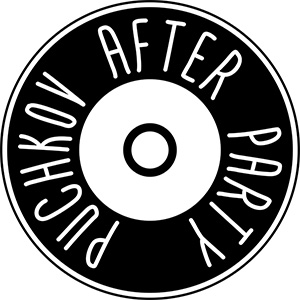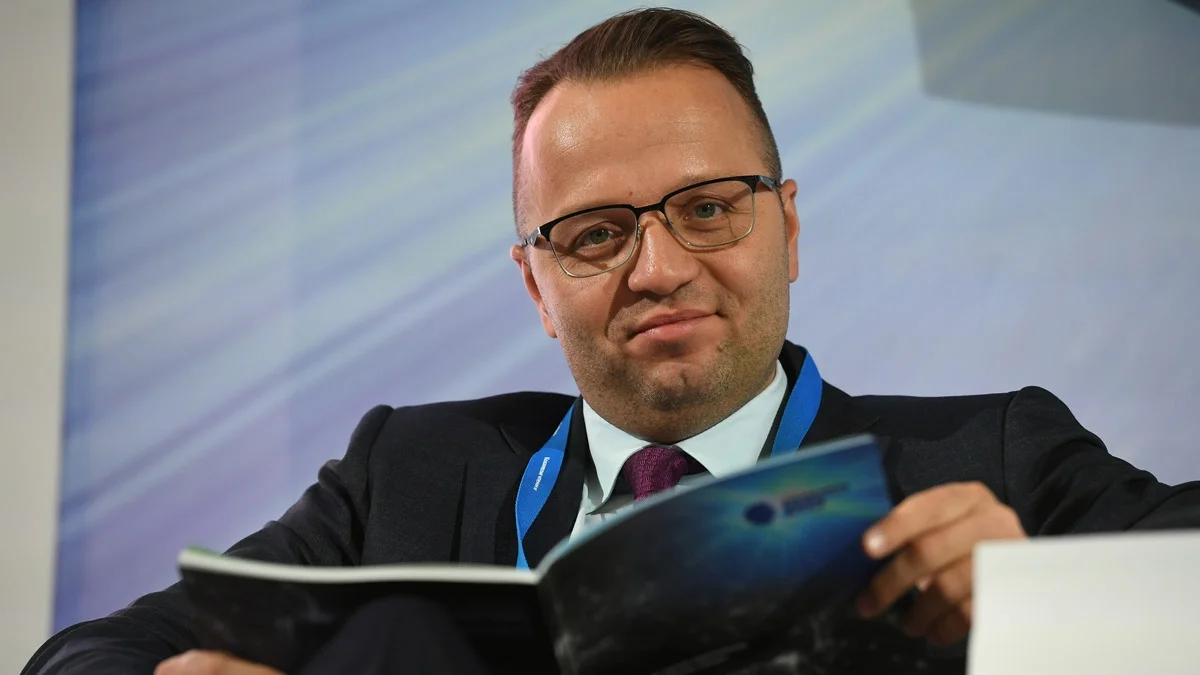09.00 - 09.45 Welcoming coffee and registration of participants
Location: Yeltsin Center, Boris Yeltsin St., 3, Yekaterinburg


09.45 - 10.15 Welcoming addresses of distinguished guests of the Conference
Location: Yeltsin Center, Boris Yeltsin St., 3, Yekaterinburg
Klishas Andrey Aleksandrovich, Chairman of the Committee of the Federal Council - the Russian Federation's on Constitutional Legislation and State Construction, Doctor of Law, Professor, Scientific Director of the Law Institute of the RUDN University, Russia, Moscow
Bublik Vladimir Aleksandrovich, Doctor of Law, Professor, Rector of the Ural State Law University, Russia, Yekaterinburg
Krekov Pavel Vladimirovich, Deputy Governor of the Sverdlovsk Region, Russia, Yekaterinburg
Kovalevа Margarita Mikhailovna, Doctor of Philology, Professor, Member of the Russian Union of Journalists, Russia, Yekaterinburg
Merzlyakova Tatyana Georgyevna, Human Rights Ombudsman of the Sverdlovsk region, Chairman of the Pardon Commission with the Governor of the Sverdlovsk region, Yekaterinburg
Pilipenko Yuri Sergeyevich, President of the RF Federal Chamber of Lawyers, Chairman of the Moscow Bar Association, YUST Law Firm, Doctor of Law, Professor, Member of the Presidium of the Russian Academy of Advocacy and Notariat, Russia, Moscow
Smirnov Stanislav Vyacheslavovich, Vice President of the Russian Federal Notary Chamber, President of Moscow Regional Notary Chamber, Russia, Moscow
10.15 - 10.45 The Conference major report: "The Right Mistake or crime"
Kozachenko Ivan Yakovlevich, Honored Worker of Science of the Russian Federation, Doctor of Law, Professor, Deputy Chairman of the Pardon Commission with the Governor of the Sverdlovsk region, Head of the Criminal Law Department, Ural State Law University, Yekaterinburg
10.45 - 11.00 Coffee Break


11.00 - 13.00 Plenary Meeting "The Right Mistake or crime"
Location: Atrium of Yeltsin Center, Boris Yeltsin St., 3, Yekaterinburg
Human activities of any kind are not insured from occurrence of mistakes. That is why a variety of schemes were invented by the society in order to determine and prevent possible mistakes. Interpreters explore common mistakes of translation, doctors examine diagnosis mistakes, and the very existence of such professions as editor and proof-reader determines the phenomenon of mistake. In the judicial system there are appellate, cassation and supervisory instances, the operation of which, generally speaking, focuses on the filtration of misjudgments and mistakes of courts. The extensive infrastructure of detection and correction of mistakes is a sign of developed society. Nevertheless, the cost of each and every mistake varies from minor to tremendous. For instance, a mistake of a mass media editor may lead to the stock market crash and a medical mistake may result in a patient’s death. In this context dichotomy of response to mistakes has appeared in our society and particular attention is given to professional mistakes. On the one hand, a mistake is allowed («man is prone to error»- Errare humanum еst) and, on the other hand, any mistake gives rise to responsibility. The establishment of responsibility engage any professional mistake in a specific area of legal regulation, situated at junction of many branches of law. A variety of approaches of different branches of law to interpretation, classification and penalization of professional mistakes complicate the developing of general legal approach. Moreover а variety of approaches make it difficult to find a balance of right and responsibility in the sphere of professional error.
Moderators
Klishas Andrey Aleksandrovich , Chairman of the Committee of the Federal Council - the Russian Federation's on Constitutional Legislation and State Construction, Doctor of Law, Professor, Scientific Director of the Law Institute of the RUDN University, Russia, Moscow
Puchkov Denis Valentinovich, Candidate of Law, Chairman of the Board of Partners of Puchkov&Partners, Russia, Yekaterinburg
Speakers
Chernikov Valeriy Vasilyevich, Doctor of Law, Professor, Honored Lawyer of Russian Federation, Vice-Chairman of the Scientific Advisory Board of Alliance Legal Consulting Group, Russia, Moscow
Kendall Coffey, Attorney, Chair, Southern District Conference, Florida Federal Judicial Nominating Commission, founder of Coffey Burlington Attorneys at Law, USA, Miami
Kuryakov Andrey Valentinovich, head of the Department of Federal Law Enforcement Supervision of the Sverdlovsk Region Prosecutor’s Office, Russia, Yekaterinburg
Neznamova Zinaida Aleksandrovna, Doctor of Law, Professor, Ural State Law University, Russia, Yekaterinburg
Rarog Alexey Ivanovich, Honored Worker of Science of the Russian Federation, Doctor of Law, Professor, Head of the Criminal Law Department, Moscow State Law University named after O.E.Kutafin, Russia, Moscow
Semenyako Evgeny Vasilyevich, The first vice president of Russian Federal Chambers of Lawyers, president of Lawyers Chamber of St. Petersburg, Russia, St. Petersburg
Questions to discuss
How to distinguish a mistake from an intended act?
What are the criteria for evaluation of level of public danger of professional mistake?
Who should evaluate a mistake: a colleague or an independent arbitrator?
What is the role of criminal law in context of responsibility for professional mistake?
How to develop the balance between right and responsibility?
13.00 – 14.00 Lunch time
Location: Restaurant Barboris at Yeltsin Center, Boris Yeltsin St., 3, Yekaterinburg

14.00 – 15.30 Panel discussion: «Business mistakes and their consequences: risk or crime?»
Location: Congress Center at Yeltsin Center, Boris Yeltsin St., 3, Yekaterinburg
Business responds to changes in the socio-economic and technological sphere much faster than other institutions and civil society. Business activities are performed at one's own risk. In some instances business risk may result in a significant adverse effect. Business models, as a rule, are driven by a cost-saving approach. However, often the desire of money saving comes into a conflict with the interests of other people. That kind of conflict may transform risk-bearing activity into illegal activity. Concentration only on responsibility makes taking the professional risk impossible. The fear of responsibility will not make any contributions to the development of business.
Moderators
Esakov Gennady Aleksandrovich, Doctor of Law, Professor, Head of the Department of Criminal Law, Faculty of Law, National Research University Higher School of Economics, Russia, Moscow
Kolpakov Konstantin Anatolyevich, Director of Directorate of Problem Assets, Block of the Executive Director of Federal State Unitary Enterprise «Russian Post», Russia, Moscow
Speakers
Bril Andrey Borisovich, Candidate of Economics, Vice-President of the RF Managers and Developers Guild, Board of Directors Chairman of Corin Holding, Russia, Yekaterinburg
Ivanov Alexey Valerievich, Attorney at Law, The Tver Region Chamber of Lawyers, Russia, Tver
Kitsing Vladimir Arvuvich, Attorney at Law, Partner, the Moscow Chamber of Lawyers «Knyazev and Partners», Russia, Moscow
Kulik Yaroslav Vladimirovich, Partner, Advocate, Head of Competition Practice, Head of South Korea Desk of law firm Art De Lex, Russia, Moscow
Klyuvgant Vadim Vladimirovich, Attorney at Law, Candidate of Historical Sciences, Deputy Chairman of the Council of the RF Federal Chamber of Lawyers on the Protection of Advocates’ Rights, Partner and Co-Head of the Criminal Law Practice, Attorneys at Law Pen & Paper, Russia, Moscow
Tenishev Andrey Petrovich, Head of the the Anti-Cartel Department, Federal Antimonopoly Service of the Russian Federation, Russia, Moscow
Questions to discuss
How to find the balance of interests between business and responsibility for business risk?
What are the legal limits of business risk?
Substantiated risk or business risk: which model should be chosen?
Who and how should assess business mistakes?
How to distinguish intended act and business risk?
14.00 – 15.30 Panel discussion: «Judicial mistakes and their sources: legislator, parties or judges?»
Location: Atrium at the Yeltsin Center, Boris Yeltsin St., 3, Yekaterinburg
Major judicial mistakes are not much discussed and, as a rule, they are not included into judicial statistics. However, such mistakes exist and are often repeated. It is not a secret for a lawyer that in both civil and criminal cases there is always untruth, concealment or incorrect interpretation of past events. Therefore, in the profession of judge an important role is played by the assessment of the reliability of information. Erroneous or false testimony of parties, witnesses and victims, mistakes in expert evidences, improper investigation may lead to incorrect court’s finding and judicial mistakes. A judicial mistake is characterized by the phenomenon of double jeopardy: on the one hand, an innocent person might be convicted and demands of a non-breaching party might be unsatisfied, on the other hand, a guilty person might remain unpunished and demands of а breaching party might be satisfied. The system of appeal is structured in such way as to minimize judicial acts that contain mistakes. But how the existing system of appeal complies with its main purpose?
Moderators
Baulin Oleg Vladimirovich, President of The Voronezh Region Chamber of Lawyers, Doctor of Law, Professor of the Civil law and Procedure Department of Law Faculty, Voronezh State University, Russia, Voronezh
Kvashis Vitaly Efimovich, Doctor of Law, Professor, Honored Scientist of the Russian Federation, expert of the Council of Europe, UN Committee on Crime Prevention and Criminal Justice
Speakers
Bevzenko Roman Sergeyevich, Candidate of Law, Partner of Pepeliaev Group Law firm, Russia, Moscow
Kuznetsova Svetlana Vasilievna, Yekaterinburg City Prosecutor, Russia, Yekaterinburg
Nagornov Vyacheslav Yuryevich, Judge, Chairman of the 1st Judicial Assembly of the Appeal Instance of the Judicial Chamber for Criminal Cases of the Sverdlovsk Regional Court, Russia, Yekaterinburg
Ponyatovskaya Tatyana Grigoryevna, Doctor of Law, Professor, Moscow State Law University named after O.E. Kutafin, Russia, Moscow
Saushkin Denis Victorovich, Attorney at Law, Managing partner of ZKS law firm, Russia, Moscow
Selivyorstov Vyacheslav Ivanovich, Honored Worker of Science of the Russian Federation, Doctor of Law, Professor of the Criminal Law and Criminology Department of Law Faculty, The Moscow State University of the M. V. Lomonosov, Russia, Moscow
Questions to discuss
Should the judge be accountable for mistakes of parties, experts and investigation?
The statistics of setting aside of judicial acts: objectivity or pressure on judges?
Should a judge seek the truth in a case?
The price of unlawful sentences: do we need the change of practice?
Is there an efficient mechanism that is liable of correcting judicial mistakes?
16.00-16.15 Coffee Break


15.45 – 17.15 Panel discussion: «Medical mistake: evaluation criteria. Iatrogenesis»
Location: Congress Center at Yeltsin Center, Boris Yeltsin St., 3, Yekaterinburg
Medical mistake can be very serious and in some cases it may result in a patient’s death. In the medical and legal sphere various approaches to the classification of medical mistakes were emerged. Therefore in the medical literature you can find a statement that a medical mistake can not be punished regardless severity of its consequences. And in case of taking another approach, the systemic conflict of interest may occur: a conscientious doctor should not be afraid of possible mistakes, otherwise the fear of responsibility for the mistake can lead to excessive caution and conservatism in treatment, which can lead to adverse effects for the patient. In criminal and medical law the different approach to understanding of medical mistake was formed: a person does bare responsibility for a medical mistake but the grounds of responsibility should be strictly defined. Such grounds usually include actions that are contrary to acknowledged medical principles, awareness of a doctor about wrongness of his or her performed action. The classification of medical mistakes is sophisticated due to the fact that only another doctor can reliably evaluate doctor’s action as erroneous action. And in some cases that fact does not contribute to the objective examination of professional mistakes.
Moderators
Krasovsky Anton Vyacheslavovich, Russian Journalist, Director of SPID.CENTER Fund, Special Adviser on Media Relations, Attorneys at Law Pen & Paper, Russia, Moscow
Radosteva Yulia Viktorovna, Candidate of Law, Associate Professor, Ural State Law University, Russia, Yekaterinburg
Speakers
Andò Bruno, Doctor of Law, PhD, Partner at Perroni e Associati Law firm, Rome, Italy
Blinov Aleksandr Georgievich, Doctor of Law, Professor, Head of the Criminal and Penal Enforcement Law Department of Saratov State Law Academy, Russia, Saratov
Fast Irina Aleksandrovna, Attorney at Law of Law Firm № 22 “Civil compensations”, Russia, Nizhniy Novgorod
Greenberg Lev Moiseevich, Doctor of Medical Sciences, Professor, Head of the Department of Anatomical Pathology and Forensic Medicine, The Ural State Medical University of the Ministry of Health of Russian Federation,Russia, Yekaterinburg
Ivanov Eduard Aleksandrovich, Lieutenant-colonel of justice, head of the Yekaterinburg Criminalistic Assistance Department of the Criminalistics Directorate of the Investigative Committee of the Russian Federation, Russia, Yekaterinburg
Kondrashova Tatyana Vladimirovna, Candidate of Law, Associate Professor, Ural State Law University, Russia, Yekaterinburg
Ozdoev Mikael Tagirovich, head of the Supervision over Investigative Committee’s Investigative Department’s Procedural Activity Office in Sverdlovsk Region Prosecutor’s Office, Russia, Yekaterinburg
Questions to discuss
Is that possible to conduct objective evaluation of medical mistakes?
What is the balance between interests of the doctor and the patient in the context of evaluation of the medical mistakes and its consequences?
How to distinguish mistake, professional risk, reasonable risk and a crime?
What is the role of corporate liability in the medical profession?
Does the non-public concealment of medical mistakes by colleagues exist?
15.45 – 17.15 Panel discussion: “Professional mistakes in practice of lawyers and notaries: the strength of a word and the charge for it? "
Location: Atrium at the Yeltsin Center, Boris Yeltsin St., 3, Yekaterinburg
Some types of professional activities are subjected to dual supervision: for instance, notaries and auditors are the members of professional associations (chambers and self-regulatory organizations) and additionally their professional activities are controlled by the state bodies. The cost of mistakes in such areas of professional activity is high: on the one hand, individuals are held liable to professional associations they belong to and, on the other hand, they bear liability to the state (as an example the art. 202 of the Criminal Code of the Russian Federation may be listed). Actual position of affairs seems more and more unjust for those, whose offenses are necessarily examined with the aim of detection of malicious act, while others, participating in the same professional sphere, may go unpunished. Besides of dual supervision problem, there are debates about the role of moral in the context of preventing professional mistakes. On the one hand, standards of conducts are enshrined in corporate documents, and, on the other hand, the standards are still violated that leads to serious and even dire consequences.
Moderators
Pilipenko Yuri Sergeyevich, President of the RF Federal Chamber of Lawyers, Chairman of the Moscow Bar Association, YUST Law Firm, Doctor of Law, Professor, Member of the Presidium of the Russian Academy of Advocacy and Notariat, Russia, Moscow
Smirnov Stanislav Vyacheslavovich, vice President of the Russian Federal Notary Chamber, President of Moscow Regional Notary Chamber, Russia, Moscow
Speakers
Andreas Dippe, Advocate, Derra, Meyer&Partner Rechtsanwälte, LLM, Berlin, Germany
Efimov Alexey Andreevich, Judicial Advisory Officers, Federal Notarial chamber of the Sverdlovsk region, Russia, Yekaterinburg
Makarov Sergey Yuryevich, Attorney at Law, Adviser of RF Federal Chamber of Lawyers, Candidate of Law, Associate Professor of the Bar Department, Moscow State Law University named after O.E. Kutafin, Russia, Moscow
Pereladov Andrey Victorovich, Attorney at Law, Cochairman of the Board, The Regionservice chamders of Lawyers
Pustovit Yuri Pavlovich, Managing partner, Attorney at Law, Advocates Bureau Yug (ABY), Russia, Krasnodar
Yarkov Vladimir Vladimirovich, Head of the Civil Procedure Department, Ural State Law University, Professor of the Ural Branch of the Russian School of Private Law, Doctor of Law, Professor, Russia, Yekaterinburg
17.10 – 18.40 Public talk «The right to make mistakes and perfectionism in the legal profession»
Location: Ural State Law University, Yekaterinburg, Komsomolskaya streeet, 21, The Main Campus, the Second Roman Audience
Speakers
Bevzenko Roman Sergeyevich, Candidate of Law, Partner of Pepeliaev Group Law firm, Russia, Moscow
Smirnova Ekaterina Alexandrovna, Counsellor of Attorneys at Law «Ivanyan & Partners», Russia, Moscow
20.00 – 00.00 Puchkov AfterParty with special guests invited
Location: Club at the Yeltsin Center, Boris Yeltsin St., 3, Yekaterinburg
Puchkov AfterParty is hospitable and friendly atmosphere, good and quality music together with modern interior, high-quality sound and lighting. So there is everything to spent great time after intensive working day of the Conference.
The concert of incomparable Nino Katamadze and her group «Insight» is the highlight of the evening. The musicians are recognised stars of world jazz festivals.
The performance of Nino Katamadze & Insight always amazes guests with musical ingenuity, combination of unique voice and manner of performance, temperament and sincerity.
The professionalism of Andrey Bova head chef of «Yeltsin Center» will complement the atmosphere of hospitality.


